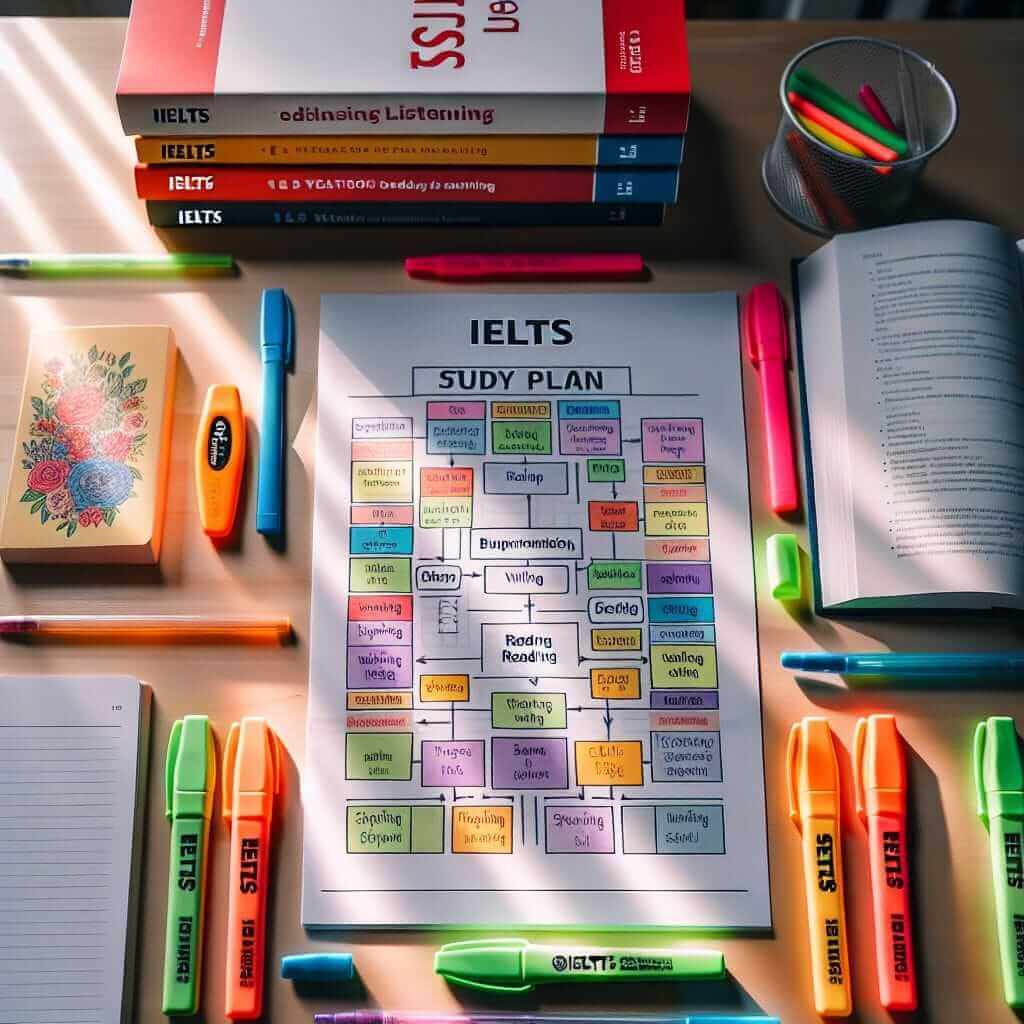Passing the IELTS exam can be your ticket to exciting opportunities, whether it’s for academic advancement or global career prospects. As an IELTS instructor with over two decades of experience, I’ve witnessed firsthand the transformative power of a well-structured study plan. This guide will provide you with a comprehensive roadmap on how to plan your IELTS preparation effectively.
Understanding Your IELTS Goal
Define Your Target Score
The first step in crafting an effective plan is to determine your target band score. IELTS scores range from 0 to 9, with each band representing a different level of English proficiency. Research the specific requirements of the institutions or organizations you’re targeting to identify the minimum score needed.
Identify Your Strengths and Weaknesses
Take a diagnostic IELTS practice test to gain insights into your current English language proficiency level. Analyze your performance in each section (Listening, Reading, Writing, and Speaking) to identify your strengths and areas that require improvement. This self-assessment will help you prioritize your study efforts effectively.
Building Your IELTS Study Plan
Set Realistic Goals and Timelines
Based on your target score and the time available, establish realistic study goals and a reasonable timeline for your preparation. Divide your study time into manageable chunks, focusing on specific skills or sections of the exam. Consistency is key!
Choose the Right Study Materials
Select high-quality IELTS preparation materials, including practice tests, textbooks, and online resources. Utilize a variety of materials to ensure comprehensive coverage of all exam topics and question types.
Develop Effective Study Habits
- Create a dedicated study space: Find a quiet and comfortable environment that is conducive to focused learning.
- Establish a consistent study schedule: Set aside specific times for IELTS preparation and stick to your schedule as much as possible.
- Vary your study methods: Incorporate a mix of activities, such as practicing sample questions, reviewing grammar rules, and engaging in English conversation to keep your study sessions engaging and effective.

Mastering the Four IELTS Sections
Listening
- Familiarize yourself with a variety of accents: Listen to English audio materials from different countries to develop your ability to understand diverse accents.
- Practice active listening: Pay close attention to the audio recordings and take notes on key information.
- Focus on keywords and synonyms: Identify the main ideas and supporting details by paying attention to keywords and their synonyms.
Reading
- Improve your reading speed and comprehension: Practice reading different types of texts, such as articles, essays, and reports, to enhance your reading fluency and comprehension skills.
- Skim and scan effectively: Develop techniques to quickly identify the main idea and locate specific information within the passages.
- Pay attention to detail: IELTS Reading questions often focus on specific details, so practice careful reading and understanding of the nuances of language.
Writing
- Understand the task requirements: Carefully analyze the prompts and make sure you fully understand the task requirements before you begin writing.
- Plan your essays: Take time to brainstorm ideas and create a clear outline for your essays to ensure coherence and logical flow.
- Use a range of vocabulary and grammar: Showcase your language skills by using a variety of vocabulary and grammatical structures accurately and appropriately.
Speaking
- Practice speaking English regularly: Engage in conversations with native English speakers or language partners to improve your fluency and pronunciation.
- Expand your vocabulary: Learn and practice using a wide range of vocabulary related to common IELTS topics.
- Familiarize yourself with the speaking test format: Understand the different parts of the speaking test and practice answering sample questions to build confidence.
Example from a Real IELTS Speaking Test
Part 1: Introduction and Interview
Examiner: “Let’s talk about your hometown. Where is it located?”
Candidate: “My hometown is Hanoi, which is the vibrant capital city of Vietnam.”
Part 2: Individual Long Turn
Examiner: “Describe a time you had to adapt to a new situation.”
Part 3: Two-way Discussion
Examiner: “What are some of the challenges people face when adapting to a new culture?”
Top Tips for IELTS Success
- Start early: Don’t wait until the last minute to begin your preparation. The earlier you start, the more time you’ll have to improve your skills.
- Practice consistently: Regular practice is crucial for success in all sections of the IELTS exam.
- Seek feedback from experienced instructors: Get your writing and speaking evaluated by qualified IELTS instructors to identify areas for improvement.
- Manage your time effectively: Time management is essential during the IELTS exam. Practice answering questions within the allotted time limits.
- Stay calm and confident: Believe in your abilities and approach the exam with a positive mindset.
Conclusion
Remember, achieving your desired IELTS score is an attainable goal with thorough planning, dedicated effort, and the right guidance. By following the steps outlined in this guide, you can approach the IELTS exam with confidence and increase your chances of success. Good luck!